About Fayetteville VA Medical Center Ramsey Street
Fayetteville VA Medical Center on Ramsey Street is located in Fayetteville, North Carolina. This is a comprehensive healthcare facility that serves veterans, and their families. This includes LGBTQ+ military personnel. They provide a range of physical and mental health services here, including co-occurring substance use disorders. Services are offered in an outpatient treatment setting. You can get referred to other locations for more robust care.
They accept insurance policies From most major insurance providers including Medicaid. They also take VA benefits.
Their support is rooted in evidence based practices and are designed to help you navigate the road to recovery with the support of a dedicated clinical care team. You’ll first undergo an evaluation where your addiction use disorders will be identified. If you have an underlying mental health condition, that will be identified as well.
You’ll work through cognitive behavioral therapies in both individual and group settings. You’ll learn different coping strategies and techniques that will help you gain healthy habits for success. If your circumstances require it, medication management may be introduced into your treatment plan.
They also have a program for smoking and tobacco cessation. You’ll get connected to resources and programs in your community that can help you quit smoking.
You can also get access to other supports like 12 Step programs including Alcoholics Anonymous and Narcotics Anonymous within your local community. You’ll have a network of peers and mentors you can lean on during the difficult parts of your recovery.
Addiction Treatment Programs
Alcohol Rehab
The best way to achieve recovery from alcohol use disorder is by completing a high-quality alcohol rehab in North Carolina and applying the tools you learn to stay in sobriety. In an alcohol program you’ll not only receive treatment, but you’ll participate in activities, receive peer support, and learn how to have fun without alcohol.
Dual Diagnosis
For many people in North Carolina, dual diagnosis treatment that addresses mental health and substance use is essential to their recovery. In dual diagnosis programs, the activities, peer support, and counseling are tailored to the unique needs of those with mental health concerns. This may include additional therapy, medication, or peer support.
Opioid Addiction
Facilities that offer substance use treatment in North Carolina can give you the skills and tools you need to break free from opioid addiction. Common services include counseling and classes on coping skills, emotional management, communication, and other key life skills. Opioid rehab programs can provide inpatient or outpatient treatment.
Adult Program
Adult program programs in North Carolina address the specific needs of this stage of life. In an adult program, the activities, peer support, and counseling are tailored to the unique needs of this age group. This may include talking about how to build a career, raise a family, and handle the many responsibilities of independent living.
Senior Rehab
Adults who are older have different needs than younger generations. A senior rehab in North Carolina can give you the tools you need to overcome addiction. In the senior program, the activities, peer support, and counseling are tailored to the unique needs of older clients. This may include pain management education, lower-impact exercise, and outings that are accessible to those with mobility challenges.
Military Rehab
A military rehab in North Carolina can address issues unique to service members and veterans, allowing you to create a better life for yourself. In a military program, the activities, peer support, and counseling are tailored to the unique needs of service members and veterans. This may include trauma-informed care, treatment for PTSD, stress management, and more.
Men's Rehab
A men’s rehab in North Carolina can provide every level of care while addressing the unique needs of men. In a men’s program, the activities, peer support, and counseling are tailored to the unique needs of men. This may include talking about career development, fatherhood, communication strategies, and more.
Women's Rehab
Choosing a women’s rehab in North Carolina can be a great way to manage gender-specific issues while also addressing substance use. In a women’s program, the activities, peer support, and counseling are tailored to the unique needs women have. This may include talking about building a career, motherhood, relationship safety, and more.
Insurance Coverage
Private insurance
If you’re looking for ways to pay for rehab in North Carolina, consider using private insurance. Insurance plans can pay some or all of the costs of rehab. Each plan has different coverage details, and you’ll pay less if you choose a treatment center in the plan’s network. Contact the insurer to find out more information.
Self-pay options
In North Carolina, one option to pay for substance use treatment is self-pay, also known as private pay. You can use a medical loan, write a check, or send money to the center electronically. Check on the fee structure, which can vary depending on the type of care.
Financing available
Paying for rehab in North Carolina can be done in multiple ways, including using financing options if they are available. Some centers offer financial help such as grants, scholarships, or payment plans. You may also decide to get a medical loan.
Military insurance
Paying for rehab in North Carolina can be done in multiple ways, including using military insurance. Plans vary, so contact the insurer to find out what treatment centers are in your plan’s network and to learn coverage details.
Medicaid
How do you pay for rehab in North Carolina? If you qualify, a good option is Medicaid. You’ll need to choose a program that accepts Medicaid as payment, and you can access multiple levels of care, including detox, inpatient, and outpatient treatment.
Levels of Care
- 1
Detox Treatment
If you’re ready to break free from addiction in North Carolina, the first step is detox. Detox gets you ready to start building new habits, creating healthy relationships, and learn healthy coping strategies and other essential life skills.
- 2
Inpatient Rehab
If you’re starting out on your recovery journey, inpatient treatment can give you the focused, supportive environment you need to build a solid foundation. Inpatient care doesn’t just involve therapy, you also enjoy activities and outings, and many programs have holistic treatment like yoga, mindfulness, and more.
- 3
Outpatient Rehab
If you struggle with addiction in North Carolina, outpatient care is one option for rehab. You’ll live at home or in sober living outside of sessions. During outpatient treatment, clients have independence outside of sessions, allowing them to work, attend school, and practice their new habits in real-world situations.
- 4
Aftercare Support
Aftercare in North Carolina will help you connect with resources and support from others so you can encourage each other over the long term. A strong aftercare program can include ongoing counseling, education and employment support, housing services, and connections to community resources.
- 5
Intervention Services
If your loved one is struggling with addiction in North Carolina, intervention services can help them decide to get help. Your family can get pre-intervention counseling, help with the event itself, and support in helping your loved one find and complete a high-quality rehab program.
Therapies
Cognitive Behavior Therapy
Receiving cognitive behavioral therapy in North Carolina helps you identify your automatic interpretations of situations and how that impacts your behavior. CBT can help you identify and challenge maladaptive thoughts, calm your mind, and face your fears rationally.
Family Therapy
If you struggle with addiction in North Carolina, it’s common to have broken and dysfunctional family relationships. Family therapy can help you address those issues and find support from your loved ones. Family therapy is a common part of both inpatient and outpatient substance use treatment and may be used to help address trauma, build better relationships, and help loved ones become part of your support network.
Group Therapy
If you struggle with addiction in North Carolina, it’s common to feel like no one understands you. Group therapy can help you find common perspectives and support. In rehab, group therapy is only one of the elements of treatment, along with activities, peer support, individual counseling, relapse prevention, and more. Together, all these methods support you in establishing long-term recovery.
Individual Therapy
In North Carolina, individual therapy allows you to work one-on-one with a professional to address your past experiences and substance use triggers. This support and accountability help you establish recovery. Substance use treatment includes detox, inpatient treatment, and outpatient care, and individual therapy may be a part of each of these stages. The goal is to help clients address the roots of addiction, develop motivation to change, and create new habits for a substance-free life.
Rational Behavioral Therapy
Rational behavior therapy in North Carolina involves being aware of how your beliefs are connected to your feelings and behavior. RBT can help you identify and challenge maladaptive beliefs, reframe them, and face triggering events rationally.
Trauma Therapy
When you’ve experienced trauma, it’s natural to try to protect yourself from further harm. Trauma-informed therapy in North Carolina can help you see how substance use is connected to your past experiences and how you can learn to care for yourself in healthier ways. Substance use and trauma are interrelated, and trauma-informed therapy involves working with the therapist and your support network to create healthy coping skills, become empowered, and improve resilience.
Accreditations
Location
Contact Fayetteville VA Medical Center Ramsey Street
Top Drug Rehab Centers in North Carolina
-
 North Carolina
North CarolinaSilver Ridge
183 Old Turnpike Road Mills River, North Carolina 28759
-
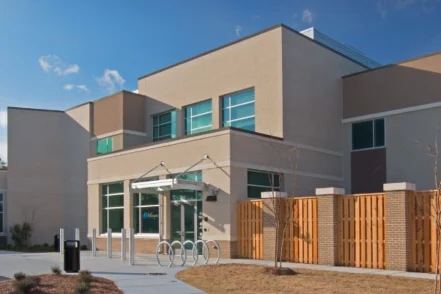 North Carolina
North CarolinaWilmington Treatment Center Troy Drive
2520 Troy Drive Wilmington, North Carolina 28401
-
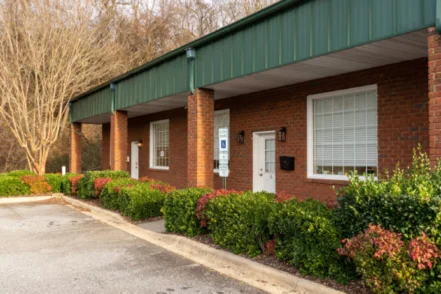 North Carolina
North CarolinaAsheville Recovery Center
9 Old Burnsville Hill Road, Suite 7 Asheville, North Carolina 28804
-
 North Carolina
North CarolinaCrossroads of Greensboro
2706 North Church Street Greensboro, North Carolina 27405
-
 North Carolina
North CarolinaDilworth Center
2240 Park Road Charlotte, North Carolina 28203
-
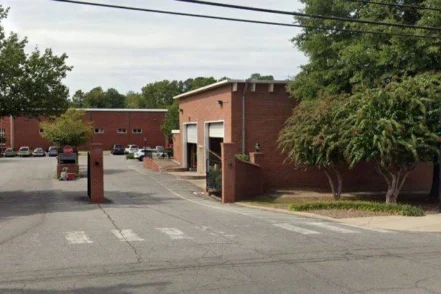 North Carolina
North CarolinaTriangle Residential Options for Substance Abusers
1820 James Street Durham, North Carolina 27707
-
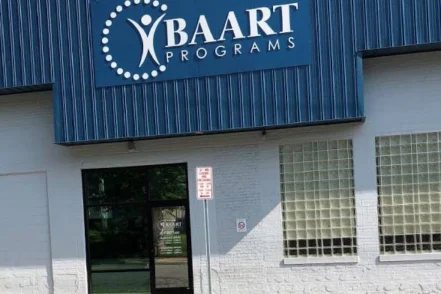 North Carolina
North CarolinaBAART Programs Durham
800 N Mangum Street, Suite 400 Durham, North Carolina 27701
-
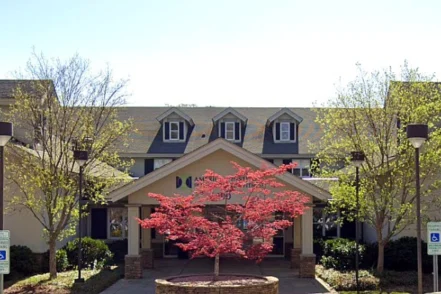 North Carolina
North CarolinaCarolina Performance
8300 Health Park, Suite 201 Raleigh, North Carolina 27615
-
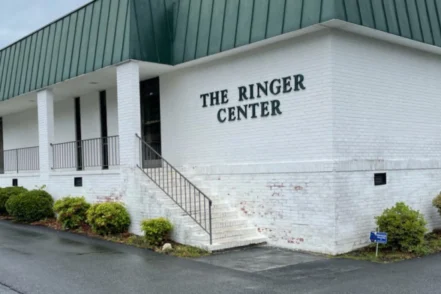 North Carolina
North CarolinaThe Ringer Center Greensboro
213 East Bessemer Avenue Greensboro, North Carolina 27401
-
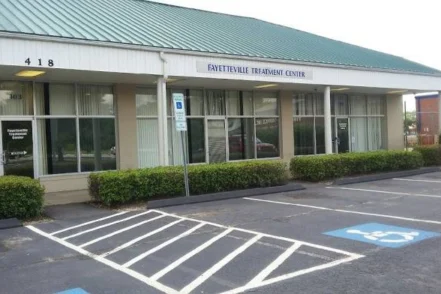 North Carolina
North CarolinaNew Season Fayetteville Treatment Center
Person St, Suite 103 Fayetteville, North Carolina 28301
-
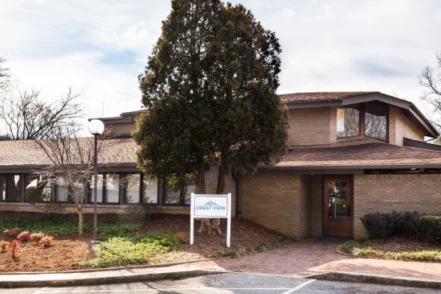 North Carolina
North CarolinaCrest View Recovery Center
90 Asheland Avenue, Suite D Asheville, North Carolina 28801
-
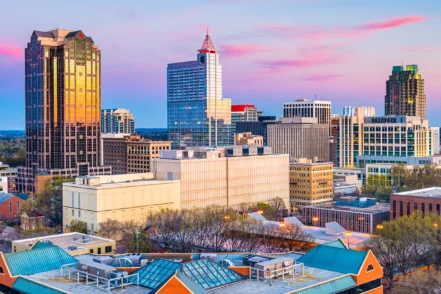 North Carolina
North CarolinaHolly Hill Hospital
3019 Falstaff Road Raleigh, North Carolina 27610
-
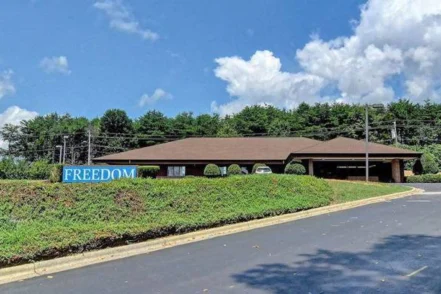 North Carolina
North CarolinaFreedom Detox
1089 X Ray Dr Gastonia, North Carolina 28054

